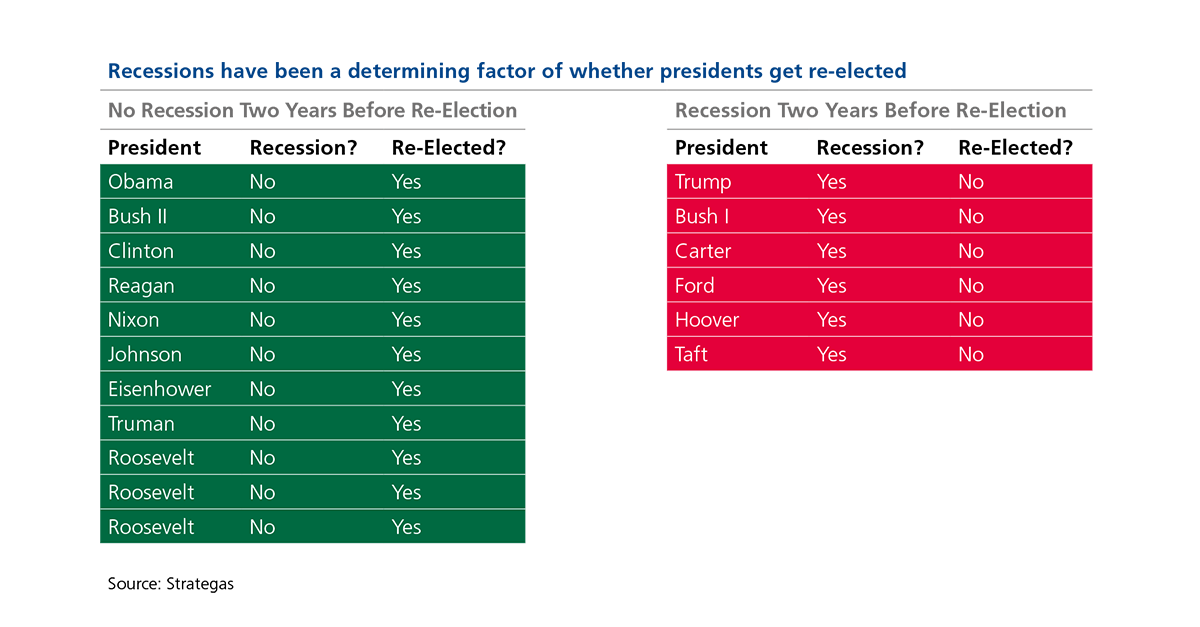In the movie industry, most popular franchises have sequels. It’s a simple way for studios to bring beloved characters back to an already engaged audience.

One of the most iconic franchises, Rocky, had six films, followed by a spin-off Creed series. The earliest films saw the protagonist, Rocky Balboa, an inexperienced boxer, train to defeat the heavyweight champion, Apollo Creed. Given a slim and unconvincing victory, the rematch formed the plot of the sequel when Rocky delivered the knockout blow and was crowned champion.
Sometimes in today’s political environment, it is increasingly difficult to distinguish between film and reality. The current political heavyweight, President Joe Biden, is now one step closer to facing a rematch with his fierce opponent, former President Donald Trump. Given his legal setbacks, he appears to be emulating one of Rocky’s most famous quotes: “It ain’t how hard you hit, it’s about how hard you can get hit and keep moving forward.”
Trump’s landslide victory at the Iowa caucuses, the contest for the Republican candidate narrowed to two after Florida Governor Ron DeSantis dropped out. He endorsed Trump shortly after. Earlier this week, attention shifted to New Hampshire in a contest putting Trump against former South Carolina Governor Nikki Haley. Voters seemed unphased by Trump’s four indictments and 91 felony charges,1 and Trump handily defeated Haley in New Hampshire, leaving his lone rival with an uphill battle and accelerating his push towards securing the Republican nomination.
Given existing concerns of more flare ups with ongoing conflicts (Russia/Ukraine; Israel/Hamas and the US/UK military action against Yemen’s Houthi militants in the Red Sea), a reintroduction of a hawkish and unpredictable president complicates the picture. Russia and China have supported each other militarily, economically and politically for some time. Trade between the two countries expanded after Russia’s invasion of Ukraine giving China the opportunity to buy Russian oil at a discount. While Trump has previously introduced tariffs on Chinese goods and blamed the country for the pandemic, his ambiguity on supporting Taiwan has been a cause for concern.
Investors do not like uncertainty, but history suggests remaining invested in an election year is prudent. The S&P 500 has increased in each of the past 13 presidential re-election years, and by double digits over the past four re-election years.2 Also worth noting, in re-election years, the S&P 500 has outperformed by 13% compared with open election years.3 Biden, the incumbent, has several tools at his disposal to keep US growth on solid footing. It seems likely that using some of these tools, which include releasing oil from the Strategic Petroleum Reserve, and fiscal spending on infrastructure related projects, among others, will be a priority for him as recessions have historically been a determining factor when getting re-elected.

In terms of stock selection, there are likely to be beneficiaries should Trump win in November. Trump has previously threatened a 10% tariff on all imports into the US. It is doubtful this will be implemented broadly, but should some of these tariffs return, expect pressure to resume on China, Europe and Mexico, as well as the steel and lumber sectors, giving domestic companies a boost.4
The renewable energy production sector has benefited from one of Biden’s key initiatives, the Inflation Reduction Act (IRA). The IRA commits $369 billion into green technology and has initiated over 280 new clean energy projects5 as well as generating more than 170,000 jobs.6 While details remain unclear, it is likely a Trump victory would weigh on the renewable energy sector.
A lot depends on how the House of Representatives and the Senate are divided and whether the president has a majority. We can assume that Trump’s fiscal policy will include some combination of tax cuts, deregulation, and efforts to stimulate economic growth. During his first presidency, the Tax Cuts and Jobs Act of 2017 reduced corporate and individual tax rates. Trump also sought to boost business investment and job creation through these policies. Should he win the presidency, small businesses may see a cut in red tape, which would support these sectors. These stimulatory policies would complicate the job of the Federal Reserve and could see interest rates remain higher than currently projected.
It’s a remarkable year for elections even without the Biden vs Trump rematch. Indeed, more people will go to the polls this year than any other year in history.7 While it is too early to predict the outcome for the US election, it feels safe to say this could well be a once in a lifetime re-match.
[1] Citizens for Responsibility and Ethics in Washington (CREW), https://www.citizensforethics.org/reports-investigations/crew-reports/trumps-91-criminal-charges-and-where-they-stand/
[2] Strategas, Political and Public Policy Outlook
[3] Strategas, Political and Public Policy Outlook
[4] Strategas
[7] Time, https://time.com/6550920/world-elections-2024/
This communication is provided for information purposes only. The information presented herein provides a general update on market conditions and is not intended and should not be construed as an offer, invitation, solicitation or recommendation to buy or sell any specific investment or participate in any investment (or other) strategy. The subject of the communication is not a regulated investment. Past performance is not an indication of future performance and the value of investments and the income derived from them may fluctuate and you may not receive back the amount you originally invest. Although this document has been prepared on the basis of information we believe to be reliable, LGT Wealth Management UK LLP gives no representation or warranty in relation to the accuracy or completeness of the information presented herein. The information presented herein does not provide sufficient information on which to make an informed investment decision. No liability is accepted whatsoever by LGT Wealth Management UK LLP, employees and associated companies for any direct or consequential loss arising from this document.
LGT Wealth Management UK LLP is authorised and regulated by the Financial Conduct Authority in the United Kingdom.